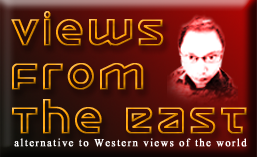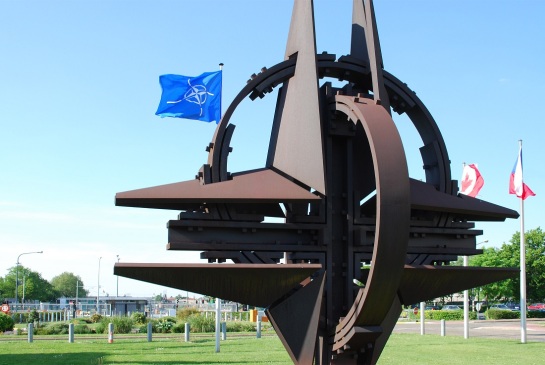US President Obama’s visit to the former Soviet republic of Estonia can’t be more timely as talks of establishing a rapid military force to counter the perceived Russian aggression and fighting between the government of Kiev and separatist rebels in the East intensifies.
During the visit to Estonia, Obama announced that the “door to NATO membership will remain open” and reaffirmed the principles that guided NATO, such as strengthening countries outside the alliance, including Ukraine, to improve their military.
The visit comes a day before a NATO summit to be held in Wales. Dubbed as “the most important gathering of NATO leaders in more than a decade”, the summit will discuss issues relating to America’s failure in Afghanistan, the new threat of Islamic extremism, and the situation in Ukraine.
On the one hand, Ukrainian Prime Minister Arseny Yatsenyuk flirted with the NATO membership, stating his eagerness in making Ukraine part of the military alliance, “I consider the most correct decision would be to accept Ukraine as a member of NATO.”
Interestingly, France also made news when it changed its mind on the delivery of two Mistral warships to Russia, ordered back in 2011, because of their ‘concern’ over the situation in Ukraine. While all this is happening, four NATO warships from the US, France, Canada, and Spain will reportedly enter the Black Sea sometime this week and a military drill involving US troops will be held in Ukrainian territory this month.
A return to NATO’S core mission
There is no doubt that the situation in Ukraine has ‘reawakened’ NATO’s reason for existing after the dissolution of the Soviet Union. Contemporary observers agree that after the Cold War, with no main adversary to confront, NATO faced a nagging existential threat. For its main advocate at least, the United States has made sure wars for profit will continue to emerge, as long as it sticks to its policy of meddling in other country’s affairs.
Indeed, the alliance has come a long way of finding its raison d’etre to exist, from the much opposed Balkan wars in the 1990s to its intervention beyond Europe, namely the failed military adventure of the Afghanistan war. Eyebrows were raised during the surprise war between Georgia and Russia in 2008, but pragmatism prevailed over talks of Georgia’s annexation to the Western military alliance, as doing so might provoke Moscow’s sensitivities.
Needless to say, the situation in Ukraine today is more of an existential threat to Russia’s security than during the Georgian conflict, because of the existence of its Black Sea fleet in the Crimea. If all of Russia’s actions vis-à-vis Ukraine can be summarized in one line, then it definitely would be that Russia’s core security concerns would have been breached if Ukraine were to host the overt stationing of NATO forces there as a result of its membership.
The West’s intervention in stoking regime change in Kiev has finally paid off with the installation of a leader who is bent on welcoming imperialist money and military but with the side effect of rousing the ire of Russia. For his part though, Putin has calmly outlined his 7-step plan to stop hostilities in Eastern Ukraine. Whether his plan will be recognized by Kiev remains to be seen, but it is unlikely to be taken seriously as Ukraine’s leaders are too busy inviting the West for NATO membership.
In a recent statement, Arseny Yatsenyuk insisted on Western meddling in Moscow’s sphere of influence as if Ukraine was part of the EU, saying “we are waiting for decisions from NATO and the EU on how to stop the aggressor.” He further rejected Putin’s peace plan, stating it is “an attempt of eyewash for the international community ahead of NATO summit and an attempt to avoid inevitable decisions from the EU on the new wave of sanctions against Russia.”
The EU also has not minced its chance to further escalate their relationship with Russia, where incoming European Union foreign policy chief Federica Mogheirini announced that a new round of sanctions will be decided within a week.
At the present trajectory of international relations, it is tempting to assume that over the course of 20 years, the West, particularly NATO, has had its way with its relentless expansion towards the East. Indeed, the military alliance has essentially ‘invaded’ former Warsaw Pact members. To Russia’s eyes though, a further expansion to its very borders are a real cause for concern, especially in these days of World War memories, where the wounds from Russia’s involvement in the imperialist wars are still relatively fresh. We can only hope the West does not provoke Russia to act on those memories and fears.

